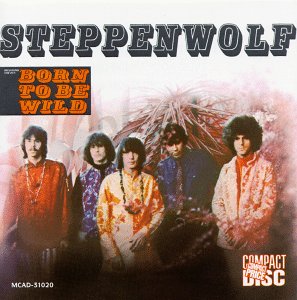
- Format: MP3

Steppenwolf entered the studio for their recording debut in mid-1968 with a lot of confidence — based on a heavy rehearsal schedule before they ever got signed — and it shows on this album, a surprisingly strong debut album from a tight hard rock outfit who was obviously searching for a hook to hang their sound on. The playing is about as loud and powerful as anything being put out by a major record label in 1968, though John Kay's songwriting needed some development before their in-house repertory would catch up with their sound and musicianship. On this album, the best material came from outside the ranks of the active bandmembers: "Born to Be Wild" by ex-member Mars Bonfire, which became not only a chart-topping high-energy anthem for the counterculture (a status solidified by its use in Dennis Hopper's movie Easy Rider the following year), but coined the phrase heavy metal, thus giving a genre-specific name to the brand of music that the band played (and which was already manifesting itself in the work of bands like Vanilla Fudge and the just-emerging Led Zeppelin); the Don Covay soul cover "Sookie, Sookie," which, as a single by the new group, actually got played on some soul stations until they found out that Steppenwolf was white; two superb homages to Chess Records, in the guise of "Berry Rides Again," written (though "adapted" might be a better word) by Kay based on the work of Chuck Berry, and the Willie Dixon cover "Hoochie Coochie Man"; and Hoyt Axton's "The Pusher," an anti-drug song turned into a pounding six-minute tour de force by the band. The rest, apart from the surprisingly lyrical rock ballad "A Girl I Knew," is by-the-numbers hard rock that lacked much except a framework for their playing; only "The Ostrich" ever comes fully to life among the other originals, but the songs would catch up with the musicianship the next time out.